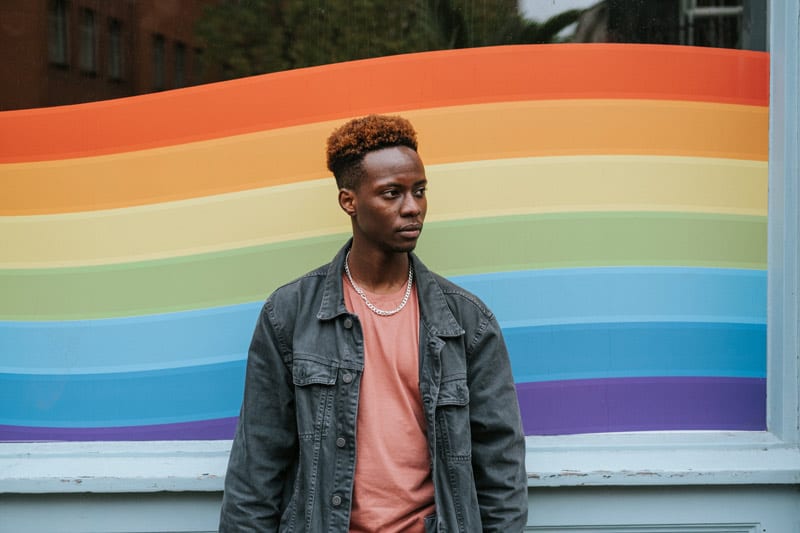It’s hard enough for young people to learn to be themselves and cope with other’s opinions of them. Students who are lesbian, gay, bisexual, transgender, or queer/questioning (LGBTQ) may find this phase of life particularly stressful or difficult. In reality, when it comes to mental health, they face specific challenges.
Discrimination toward LGBTQ students and pressure from their families and communities may put them at risk for mental health issues such as depression, anxiety, drug abuse, and even suicide. It is essential for them to find a college that provides a nurturing learning environment in which they can succeed. College counselors and health care professionals must help to address these issues.
Biggest Stresses Faced by LGBTQ Students in College
1. Harassment
Many LGBTQ students experience ridicule or bullying in high school and may face similar or worse abuse in college. According to a recent study, three out of every four LGBTQ students have been sexually harassed at least once.
Anti-LGBTQ bigotry, abuse, and hatred can wreak havoc on one’s physical and mental health. Victimization can rob LGBTQ survivors of their sense of safety, protection, and confidence in the world.
2. Coming Out
Some college students come out while questioning their identities and sexuality away from the pressures of their family or culture during their college years. The period when LGBTQ youth discover, embrace, investigate, and reveal their sexual orientation or gender identity to others is referred to as the “coming out phase.”
Understanding the formation of sexual and gender identities is a first step toward gaining awareness and insight into the unique therapy and health issues that young LGBTQ people may face. Coming out is a daunting task that requires courage.
Students who identify as LGBTQ may spend much emotional energy anticipating this decision and coping with family and friend reactions. This often stressful process will divert time, resources, and attention away from college studies.
3. Anxiety, Depression & Stress
According to some estimates, LGBTQ students aged 13 to 21 have disproportionately high rates of low self-esteem and depression. Many report skipping school because they are afraid of being harassed, indicating heightened anxiety.
Many young LGBTQ people believe they are different from their peers, which can lead to social anxiety, loneliness, and depression. Since studying is difficult when you’re stressed, anxious, or depressed, these mental health problems may have a negative impact on your studies. The probable reasons for these issues arise from:
- The social stigma of homosexuality
- Experiences of discrimination
- The difference in the lifestyles of LGBTQ people
- Lack of social and family support
4. Lack of Financial Resources & Community
LGBTQ youth seldom grow up in communities that share a common identity. As a result, many LGBTQ children experience mistreatment and alienation from their families. Lack of support often exacerbates LGBTQ students’ depression and loneliness. Stress in the family and a lack of encouragement will make obtaining a college diploma more difficult.
Some LGBTQ students’ families condemn or disown them after they bravely come out. Many financial aid applications ask questions about parents’ financial standing or require a parent’s signature, making it difficult for these students to qualify. Students unable to find a part-time job to support themselves in college often face financial difficulties and may even become homeless.
5. Body Image
Since they are socialized as females, bisexual and lesbian women’s experiences with body image and what they expect of themselves can be complicated. They are subject to contradictory beauty stereotypes promoted by both the mainstream and queer cultures. Traditional ideals of feminine beauty can be rejected by the women in the queer community, while alternative ideas are embraced.
Queer men may struggle to attain an inflated sense of male sexuality, while queer women may struggle with contradictory ideals regarding body image and femininity. Gay and bisexual men are supposed to be in shape, muscular, well-dressed, and knowledgeable about current events and trends. Some queer men express concern that being too overweight, thin, unattractive, or old would prevent them from finding partners or forming loving relationships.
Final Thoughts
For all students, the transition from high school to college can be challenging, but LGBTQ students are especially vulnerable. LGBT students can protect their mental wellbeing during college and beyond by learning good coping strategies, forming a supportive social network, finding support, and seeking professional help if necessary.
About the Author: Ani Johnson is a passionate blogger. She loves to share her thoughts, ideas, and experiences with the world through blogging. Ani Johnson is associated with OnlineHealthMedia & Follow The Fashion.
Photo by Anete Lusina from Pexels
The opinions and views expressed in any guest blog post do not necessarily reflect those of www.rtor.org or its sponsor, Laurel House, Inc. The author and www.rtor.org have no affiliations with any products or services mentioned in the article or linked to therein. Guest Authors may have affiliations to products mentioned or linked to in their author bios.
Recommended for You
- How a Health Cleanse Can Reset Your Body and Mind - April 16, 2025
- The Truth about Relapse in Addiction Recovery - April 14, 2025
- The Power of Peer Support in Mental Health Recovery - April 10, 2025






I could not refrain from commenting. Very well written!